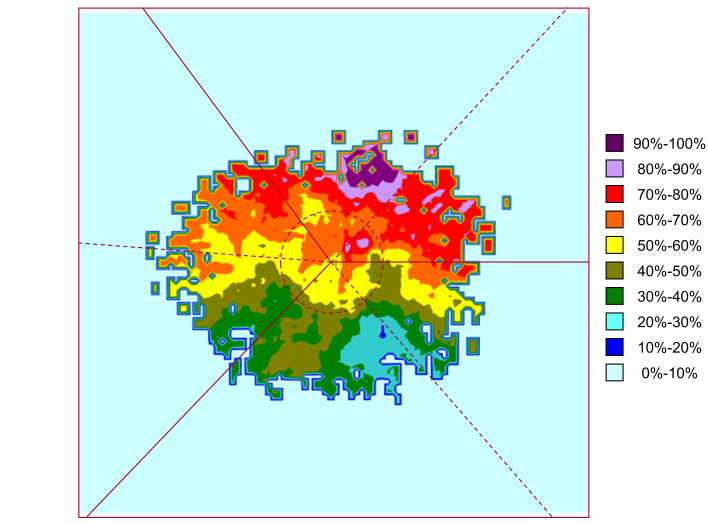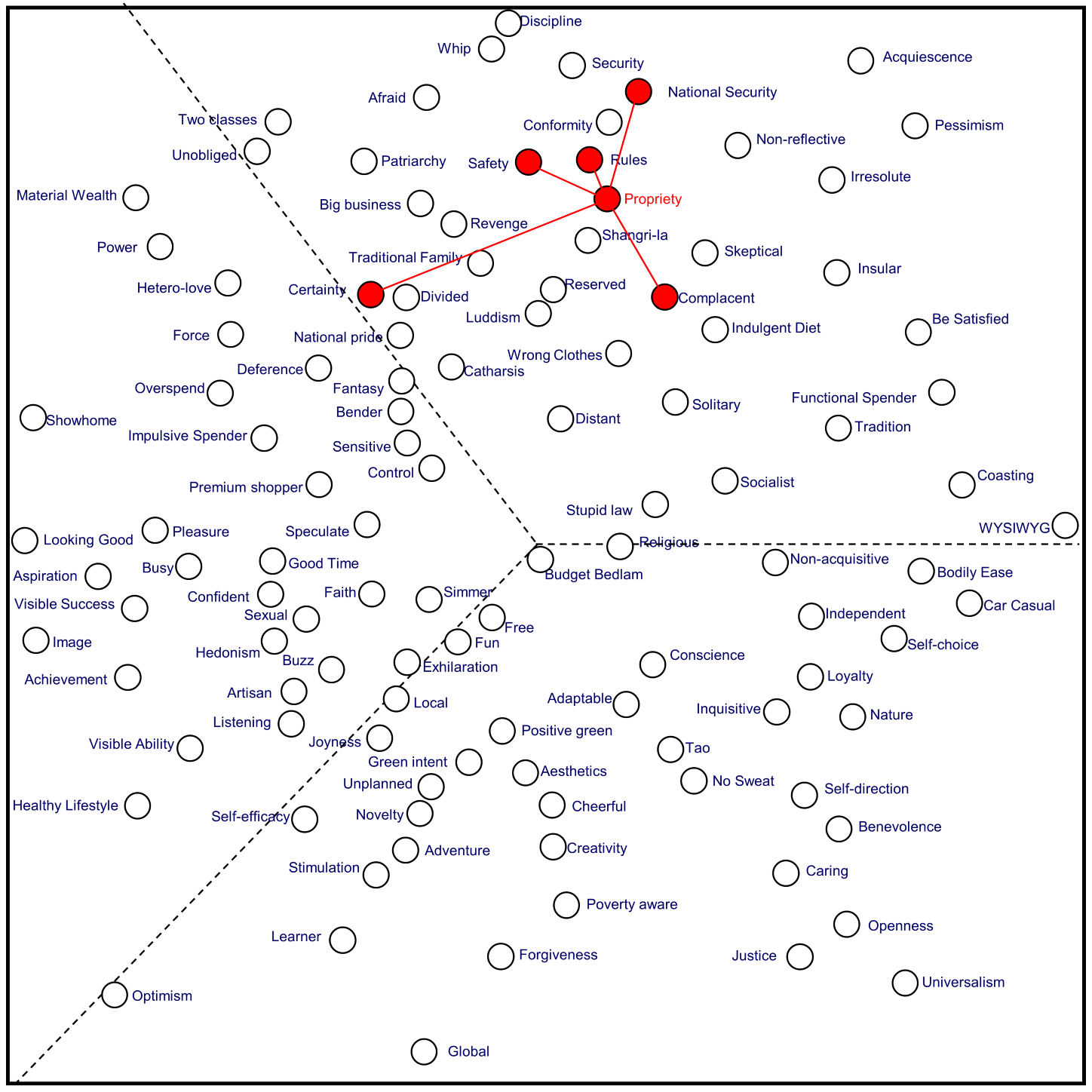

PROPRIETY
 |
It is important to me always to behave properly.
I want to avoid doing anything people would say is wrong.
Espousers of this attribute consider it important to conform to conventionally accepted standards of behaviour and morality. These norms may be implicit or explicit rules shared by a group of individuals to guide their interaction with each other. They like life to be predictable, to know where they stand and what is expected of them - to be clear what marks a person as a civilised member of society.
This internalised code of behaviour even influences when they are alone, because it is so integral to their identity and sense of self. Underlying this attribute is a need for security, regularly avoiding places and activities that they consider physically dangerous, or where there is a chance of being socially embarrassed. They do not have strong personal aspirations, except to feel safe in a community where they feel that they belong. So, it is not surprising that maintaining social order is important at the local and national levels.
Craving certainty, to know what is right and wrong, they try to avoid dilemmas and any ambiguous situations. If there are grey, or uncertain areas, they will tend to make a decision and stick to it, in order to reduce any feelings of confusion.
This attribute is above average in older people. Espousers can find it difficult to deal with the modern world where there are so many conflicting ideas. For example, bringing up children and knowing what to eat can feel stressful, because of perceived conflicting advice from experts.
People being guided by this attribute will monitor their actions in accordance with the norms of their local community - the right words to use, the right clothes to wear and the limits of socially acceptable behaviour.
This attribute is also likely to be associated with individuals who have chosen to join secure communities that are not part of mainstream society, but where the "rules" governing everyday actions are clear cut and shared by everyone.
Work colleagues, especially those working within professional codes of ethics or established working practices, are another source of knowing how to behave properly, i.e. show propriety.
They do not mind changing rules, but slowly, if they are told what to do by trusted leaders. They have a firm respect for community leaders, parents and other figures of authority, particularly if they have a clear philosophy of life and a relatively inflexible vision of the future. They prefer to follow, rather than lead, as long as the person at the front is decisive and consistent.
Using ProprietyDemographic Skews: 1) Over-indexed: 55+, down-market. 2) Under-indexed: Under 35. Propriety espousers also espouse other Attributes. The top five most highly correlated Attributes of Propriety espousers are, in order of the strength of relationship: 1) Certainty In total those who espouse Propriety also over-index significantly on 36 other Attributes. |
|
If "Propriety" (or the associated attributes) are important to you and you would like to delve more deeply, contact us at mail@cultdyn.co.uk
